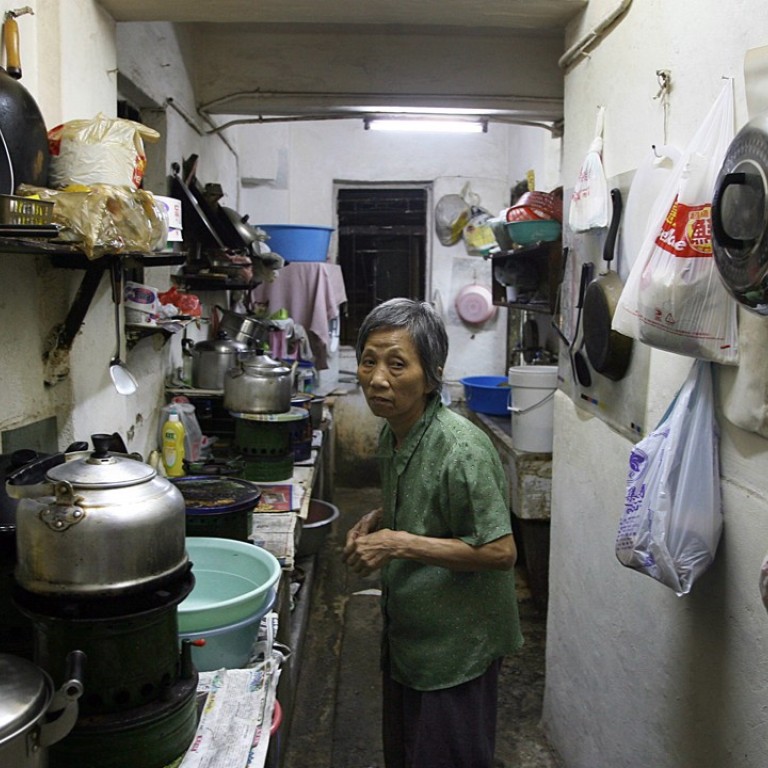
Broaden the safety net for those in need
Hong Kong is awash in money yet some one million people – 14 per cent of the population – live below the poverty line. Surely, we can do better than this
Hong Kong likes to portray itself as a caring society. While the social welfare protection offered by the government and subvented bodies may not be the world’s best, a wealth of measures are in place to help those in need. That said, there are still gaps to fill. Calls to improve the safety net are justified.
The case looks even stronger in the wake of a study by the Hong Kong Council of Social Services. According to its analysis of government data in 2014-15, poor families living in private housing needed to cut down expenses on food to pay for high rent, with some surviving on less than HK$15 per meal per person.
That Hong Kong has one of the widest wealth gaps in the world is a well-known fact. That is why successive governments have been trying different ways to help the poor. Although we are nowhere near some poor countries where starvation is a daily issue, the findings still put us to shame. Compounding the situation is the fact that these poor people are not covered by the government’s comprehensive social security assistance.
Officially, some one million people are living below the poverty line. Among them are those who do not like to live on public assistance. This is not surprising, given the red tape in application and the social stigma on welfare recipients. But for those who cannot stand on their own feet, there needs to be a good safety net.
Currently, there are no shortage of measures to help those in need. For instance, the Community Care Fund has rolled out numerous subsidy schemes to help those who are left out by the existing welfare system. There are also food banks and financial allowances for low-income families. But as the study showed, there still appears to be service gaps in our social welfare system.
The raft of initiatives rolled out by Chief Executive Carrie Lam Cheng Yuet-ngor in her first policy address can bring some relief. This includes the allocation of an extra HK447 million to extend the short-term food assistance scheme for another three years. More importantly, the existing services should be critically examined with a view to broadening the safety net for those in need.

